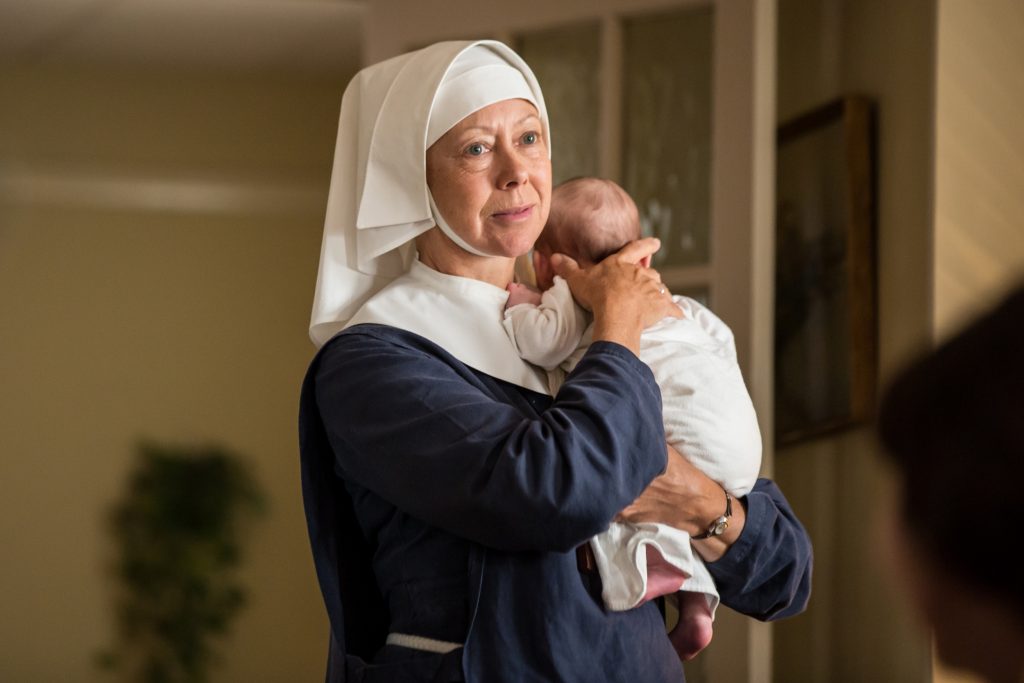Call the Midwife is back for a fifth season and so are the faculty of the Vanderbilt University School of Nursing with a weekly guest blog. Watch the show 7 p.m. Sundays through May 22, then read the blog each Monday morning for historical and contemporary context about the previous night’s episode. SPOILER ALERT: Some posts may contain spoilers.

By Bethany Domzal Sanders
Vanderbilt University School of Nursing
 Another Sunday night, another gut-wrenching episode of Call the Midwife. When the series first started, I faithfully watched every show, eagerly anticipating the hours I would spend seeing the characters of Poplar come to life. I had read the book upon which the series is based and carefully observed to see what storylines translated from the pages to the screen. But, to be honest, before long it became too much.
Another Sunday night, another gut-wrenching episode of Call the Midwife. When the series first started, I faithfully watched every show, eagerly anticipating the hours I would spend seeing the characters of Poplar come to life. I had read the book upon which the series is based and carefully observed to see what storylines translated from the pages to the screen. But, to be honest, before long it became too much.
Being a midwife can be emotionally draining. The show hit close to home at times and I began to feel like I was bringing work home with me while watching the series. So I stopped watching for a time. Eventually I got pulled back in, but the rawness of episodes like this one is both what I absolutely love about the show and what makes it sometimes so hard to watch.
Violence against women is a topic that doesn’t always garner the attention that it deserves and statistics about the frequency at which it occurs are alarming. The World Health Organization reports that 35 percent of women globally have experienced physical or sexual intimate partner violence or non-partner sexual violence during their lifetime. That’s a staggering number ‒ and, yet, sexual violence is thought to be frequently underreported.
As we saw with Lizzie in this episode, women can be reluctant to come forward out of fear of either judgment or repercussions. Women may blame themselves for the violence, especially if alcohol or drug use was involved. The reality, though, is that no one but the perpetrator is to be blamed. Recent incidences of violence reported in the media have brought some attention to the problem of victim blaming and the importance of consent, but clearly we are just starting the conversation and have a long way to go.
Fortunately, there are some incredibly strong, brave women who have the courage to raise their voices and speak out. I loved the words of Sister Mary Cynthia, “It was only a test of strength. I can bear more than I ever thought I could and I can bear it for others because my strength is a gift…I can tell the truth and not be ashamed. It’s like singing ‒ every voice counts.”
As midwives, we take seriously our responsibility to listen to women. Usually that means encouraging women to speak about their experiences in their own words. Occasionally, though, it means being their advocate and speaking up for them when they aren’t able to do so themselves. It’s a torch we are honored to be entrusted to carry, even though the burden can be heavy at times.
While I know Call the Midwife isn’t reality television, I also know that the fear, pain, trials and tribulations of the characters is representative of what I see as part of my job. After a heavy episode like this one I might be tempted to sit out the next week’s show. What I won’t do is walk away from the women I serve. Instead we can all try to be the voice for those who can’t speak up and to make the world a little bit better and safer for all women.
If you or someone you know is the victim of violence, please know that there are many local resources for help. You can reach the National Domestic Violence Hotline at (800) 356-6767 and the number for the Sexual Abuse Center is (800) 879-1999. You can call the Metro Nashville Police Department’s Domestic Violence Division at (615) 880-3000 Monday through Friday from 8 a.m. to 5 p.m. and ask to speak to a counselor.
Bethany Domzal Sanders, MSN, CNM, is a member of the Vanderbilt Nurse-Midwives, the clinical practice of the Vanderbilt University School of Nursing located at West End Women’s Health Center.